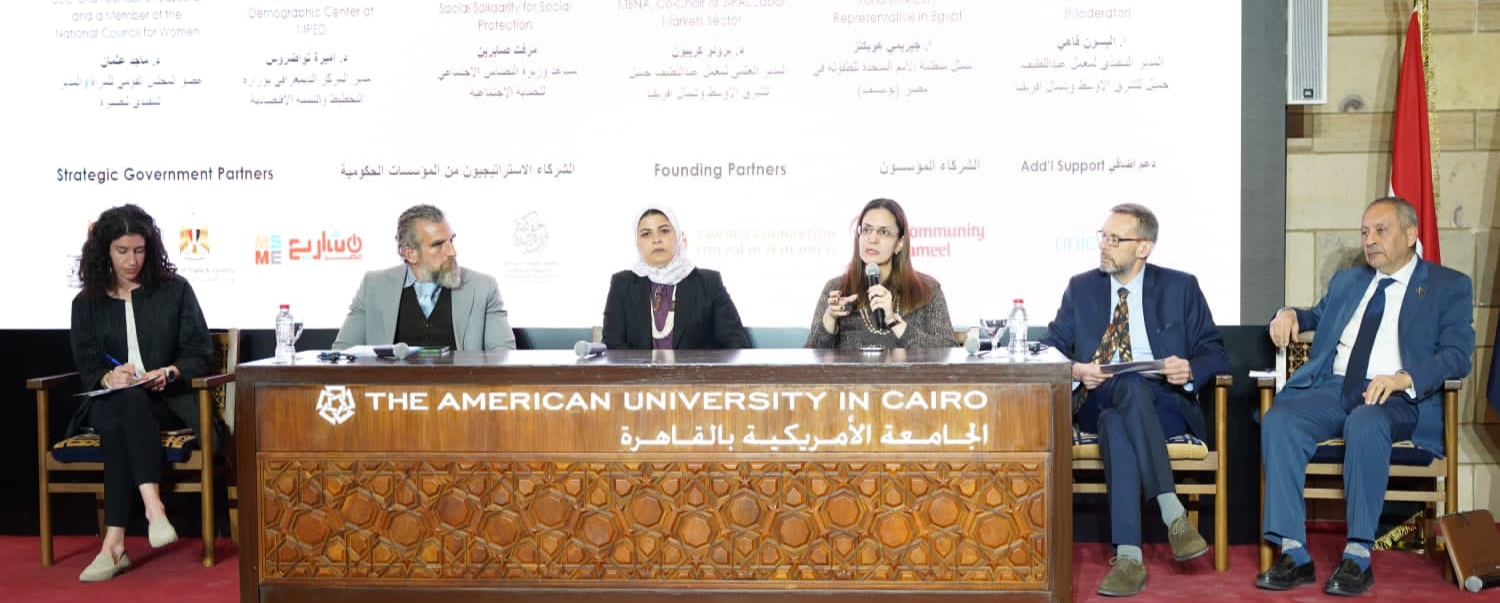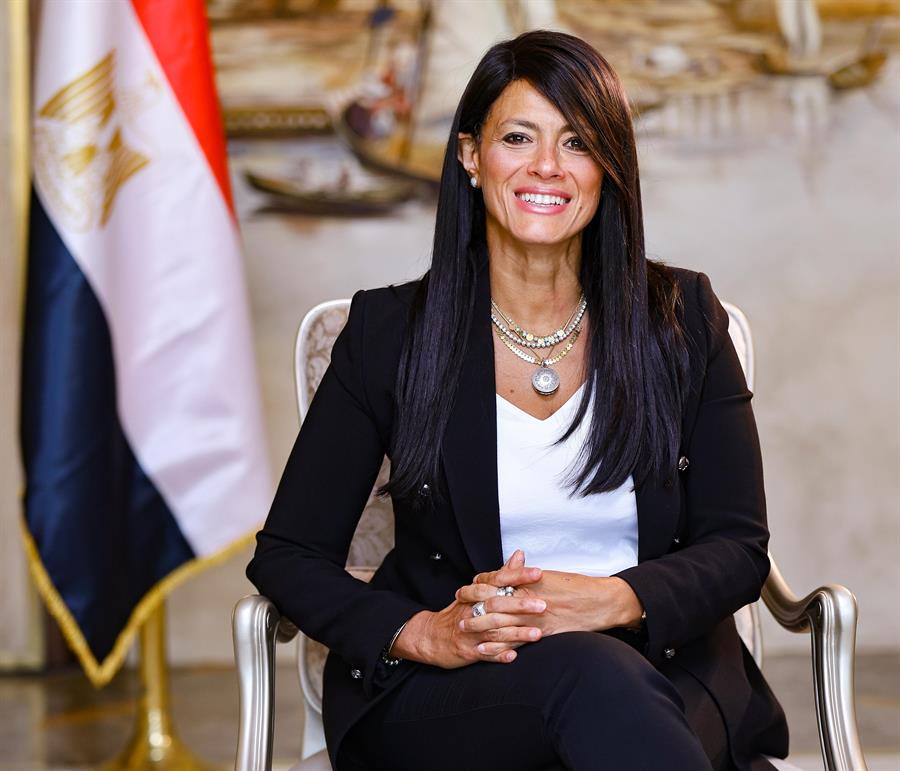Egypt's Ministry of Planning, J-PAL Middle East, and North Africa launch Egyptian Impact Measurement Lab to promote evidence-based policies

18 March 2022
The Ministry of Planning and Economic Development, in cooperation with the Abdul Latif Jameel Lab for Combating Poverty in the Middle East and North Africa at the American University in Cairo -PAL Middle East, and North Africa, held a series of sessions to discuss poverty reduction, family development, and women’s empowerment.
This came on the sidelines of launching the Egyptian Impact Measurement Laboratory to promote evidence-based policies and improve development results in Egypt.
The opening session was attended by Dr. Ahmed Kamali, Deputy Minister of Planning, Ms. Nevin Al-Kabbaj, Minister of Social Solidarity, Dr. Ahmed Dalal, President of the American University in Cairo, and Dr. Abijit Banerjee, Nobel Prize winner and director of the Abdul Latif Jameel Laboratory.
Engineer Nora Selim, CEO of the Sawiris Foundation for Social Development, George Richards, Director of Community Jameel, and Alison Fahy, CEO of Abdul Latif Jameel Lab in the Middle East and North Africa moderated the session.
Dr. Ahmed Kamali pointed out that the Egyptian Impact Measurement Laboratory is a product of cooperation between the Ministry of Planning and Economic Development and the Abdul Latif Jameel Laboratory for the Middle East and North Africa at the American University in Cairo.
Kamali explained that the lab aims to enhance the effectiveness of Egyptian policies to reduce poverty by carefully evaluating promising and innovative government programs, and using their results to expand the scope of application of those programs and policies.
The lab is also interested in building a culture of evidence-based policy-making within government institutions by building the capacity of government partners to use evidence in designing programs and their actual reach to target groups, as well as using administrative data to facilitate the production of evidence.
Mrs. Nevin Al-Kabbaj, Minister of Social Solidarity, said that universities and academics play a very important role in achieving development goals. And cognitive development, they are not just academics but are active in development.
Al-Kabbaj indicated that the university was positively included with the aim of the youth's commitment to national projects.
Dr. Ahmed Dalal pointed out that the American University in Cairo has a close, long-term relationship with the Egyptian government through a range of aspects of cooperation, and through the sharing of research to address the government's priorities.
Executive Director of J-PAL Middle East and North Africa, said: “With the Egyptian government embarking on many initiatives to reduce poverty and achieve human development, the Abdul Latif Jameel Lab for the Middle East and North Africa is pleased to partner with the Ministry of Planning and Economic Development and others from government institutions to produce cross-checked evidence on the most effective approaches to improving development outcomes for Egyptians,"
George Richards, Director of Community Jameel, said: “Supporting evidence-based policymaking is a priority for Community Jameel.
A session entitled Poverty Reduction: Transformative Models was also held; Dr. Reham Rizk, Director of the Social and Development Planning Unit at the Ministry of Planning, Eng. Tariq Shash, Deputy Executive Director and Director of Planning and International Cooperation at the Medium, Small and Micro Enterprise Development Agency, Dr. Adam Othman, Associate Scientific Director of Abdul Latif Jameel Lab for the Middle East and North Africa, participated in it. Engineer Nora Saleem, and George Richards.
During the session, Dr. Reham Rizk reviewed the "Decent Life" initiative, which aims to improve the lives of citizens in the Egyptian countryside.









